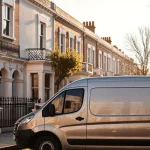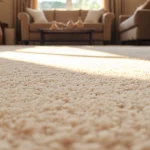Overview of Smart Water Conservation Technology
As the need for sustainable living solutions grows, water conservation in residential settings has become crucial. Smart water conservation technology offers innovative methods to manage water usage effectively. This technology is pivotal for UK residence technology, aiming to optimise water consumption and reduce waste.
Emerging smart technologies support water conservation by enabling precise control and monitoring. These systems often include features like real-time data analysis, automated controls, and integration with other smart home devices. Particularly in the UK, where weather conditions can vary, smart technology helps in adapting water usage to daily needs efficiently.
Also to discover : Your ultimate guide to choosing the ideal renewable energy provider for a sustainable uk home
Integrating these technologies into everyday life brings multiple benefits. Among those are reductions in water bills, preservation of natural resources, and fostering a culture of environmental stewardship. Beyond individual benefits, adopting smart technology on a wider scale can significantly impact water conservation initiatives, promoting sustainability at a community level.
Furthermore, smart water conservation technology offers a user-friendly interface, making it accessible to residents unfamiliar with advanced systems. As sustainable living solutions become more mainstream, embracing smart water technologies can pave the way towards a more sustainable and responsible future. By addressing UK residence technology challenges, these solutions embody resilience and forward-thinking in resource management.
In the same genre : Revitalize your uk home office: clever strategies to reduce eye strain and boost natural light
Types of Smart Water-Saving Devices
In the quest for efficient water-saving technology, the residential market presents various smart devices designed to minimise water usage. These innovations, often seamlessly integrated into homes, promise sustainability without compromising comfort.
Smart Irrigation Systems
These systems adjust water distribution based on real-time climate conditions and soil moisture levels. Installation typically requires configuring a central control unit and connecting it to existing outdoor plumbing. The benefits include targeted water use, resulting in up to 30% savings compared to traditional methods.
Smart Water Meters
Smart water meters provide real-time data analytics on household water consumption. Installation involves swapping your existing meter with a smart one, which communicates usage details to a dedicated app. Advantages include the ability to monitor and adjust water use effectively, offering insights that can lead to significant reductions in both water consumption and costs.
Automated Leak Detection Systems
Automated systems identify leaks early by monitoring water flow for anomalies. Installing these devices requires attaching sensors to vulnerable points, such as under sinks. The primary benefit is immediate leak detection, preventing water waste and potential damage, thus saving homeowners on repair costs.
Each of these smart solutions offers unique advantages over traditional systems, enhancing the potential for residential water conservation.
Case Studies of Effective Water Conservation
Smart water conservation technology has been pivotal in demonstrating its efficacy through various water conservation case studies. One noteworthy example is that of a family residing in Manchester, UK. By integrating smart water meters and automated leak detection systems, the household saw a 25% decrease in water consumption over six months. The implementation proved cost-effective, reducing water bills and promoting sustainable practices.
These successful implementations have also been echoed in communal living spaces. A housing association in Birmingham utilised smart devices to manage shared water resources efficiently. The initiative involved installing smart irrigation systems, which adjusted water usage according to real-time weather data. This led to a notable reduction in unnecessary water use, slashing operational costs significantly.
Such smart home examples illustrate how technology choice plays a role in achieving optimal results. Importantly, these case studies highlight the necessity for accurate installation and ongoing maintenance. Positive outcomes stemmed from precise calibration of devices and user engagement with the technology. Lessons learned emphasize the importance of user education and technical support to maximise the technology’s potential. By examining these cases, homeowners can draw insights to tailor strategies to their unique circumstances.
Expert Opinions on Water Conservation Strategies
Water conservation requires strategic measures to ensure sustainable management, especially in UK residence technology. Expert insights provide valuable perspectives on best practices and future trends. Interviews with conservation specialists reveal a consistent emphasis on integrating smart water technologies. Experts advocate for technologies like automated leak detection systems and smart irrigation to optimise water use. These solutions not only conserve resources but also reduce household expenses.
In terms of sustainable living solutions, experts recommend a holistic approach. It’s crucial to educate homeowners about smart device functionalities and promote a cultural shift towards resource conservation. Adoption of smart meters is highlighted as an effective strategy to offer real-time insights into consumption patterns.
Looking to the future, experts anticipate further advancements in water-conserving technologies. Innovations such as AI-driven analytics and cloud-based monitoring systems are expected to transform water management. Such trends promise more precise control and greater adaptability to environmental changes. The ongoing evolution underscores the need for continuous adaptation and learning in water-saving practices.
Key takeaways include prioritising informed decision-making and user engagement to maximise the potential of smart devices. By integrating these strategies, homeowners can elevate their role in fostering a sustainable environment.
Product Recommendations for Homeowners
Incorporating smart home devices can transform residential water efficiency. Selecting the best water-saving products begins with understanding various options and their functionalities. For those seeking budget-friendly options, products like smart water plugs offer significant savings by monitoring usage patterns without breaking the bank. They are easy to install and provide real-time data on water flow, making them accessible yet effective.
For those inclined towards premium choices, consider systems featuring advanced AI capabilities. These devices boast enhanced adaptability, customisable settings, and long-term efficiency, albeit at a higher price point.
Experts underscore top-rated smart water devices like connected irrigation systems and smart meters. They highlight benefits such as measurable decreases in water bills and effortless integration with existing smart home frameworks. Consumer reviews generally praise these solutions for their user-friendly interfaces and responsiveness to user feedback, noting improvements in daily water management.
When evaluating product effectiveness, look at longevity, maintenance requirements, and user experiences. Keep in mind the pros and cons discussed around ease of use, scalability, and adeptness in foreseeing water needs. Tailor your choice to fit both your budget and your commitment to sustainable living. Ultimately, the right device can serve as a cornerstone of efficient and mindful water conservation.
Installation Guides and Best Practices
Integrating smart devices for water conservation requires careful installation and ongoing maintenance. Begin with a step-by-step installation guide, tailored for your specific device type. For instance, smart water meters typically involve replacing traditional meters, ensuring compatibility with your existing system. To avoid common pitfalls, ensure proper calibration and sync with associated apps. Misalignment during installation could result in inaccurate data collection, undermining the device’s effectiveness.
For smart irrigation systems, setting up involves connecting a central control unit to existing plumbing, which requires precise configuration to reflect climate and soil moisture adjustments. Avoid errors by thoroughly reviewing the manufacturer’s instructions and leveraging professional support if needed.
Automated leak detection systems necessitate attaching sensors to sensitive points like under sinks. A common mistake is overlooking less accessible areas where leaks frequently occur.
After installation, maintenance tips become crucial. Regularly monitor device performance by checking for software updates and ensuring all components function correctly. Routine inspections help maintain efficacy, extending the longevity of your water conservation setup. As a rule of thumb, schedule periodic maintenance checks and engage with community forums for shared experiences and advice on troubleshooting. This proactive approach ensures your technology sustains its purpose effectively.









